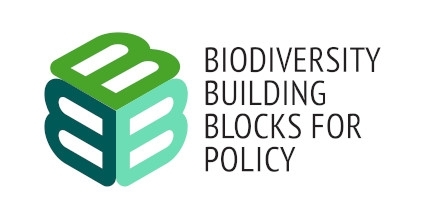[Science news] - Biodiversity Building Blocks for Policy: B-Cubed
 To better understand the magnitude and dynamics of the global biodiversity crisis and guide policy makers in their decisions to protect biodiversity worldwide, we need rapid, reliable and repeatable data. The B-Cubed project (Biodiversity Building Blocks for Policy) aims to transform biodiversity monitoring from a disconnected, labor-intensive activity into an agile and responsive process tailored to the needs of policy makers.
To better understand the magnitude and dynamics of the global biodiversity crisis and guide policy makers in their decisions to protect biodiversity worldwide, we need rapid, reliable and repeatable data. The B-Cubed project (Biodiversity Building Blocks for Policy) aims to transform biodiversity monitoring from a disconnected, labor-intensive activity into an agile and responsive process tailored to the needs of policy makers.
B-Cubed, a recently funded Horizon Europe project coordinated by Meise Botanic Garden and in collaboration with 12 other partners, was launched with a kick-off meeting in the Botanic Garden on March 13 and 14. The B-Cubed consortium will focus on the development of “data cubes” (multidimensional array of data) for biodiversity monitoring. In these cubes, biodiversity data from museums, herbaria, remote sensing, citizen scientists, naturalists and researchers will be standardized and aggregated so that they can be used in an integrated way.
B-Cubed will work closely with existing European and international biodiversity initiatives to identify and address policy needs, such as the Essential Biodiversity Variables framework. In conjunction with other environmental data and scenarios, these cubes will be the basis for models and indicators of past, current and future biodiversity. These state-of-the-art prediction models will be accessible to users in real-time and on-demand in a cloud computing environment, delivering accurate, reliable and understandable information on biodiversity status and change.
The products of this project will be kept up-to-date and the consortium will develop workflows to get started with data cubes when modeling and calculating policy indicators. To ensure its tools meet users’ needs and effectively capture relevant policy aspects of biodiversity change, B-Cubed will include four case studies. These will cover different locations varying in geographic extent, biodiversity richness and data availability.
For more project news, follow the project on Twitter, LinkedIn and GitHub and stay tuned for more information on the upcoming B-Cubed website.



